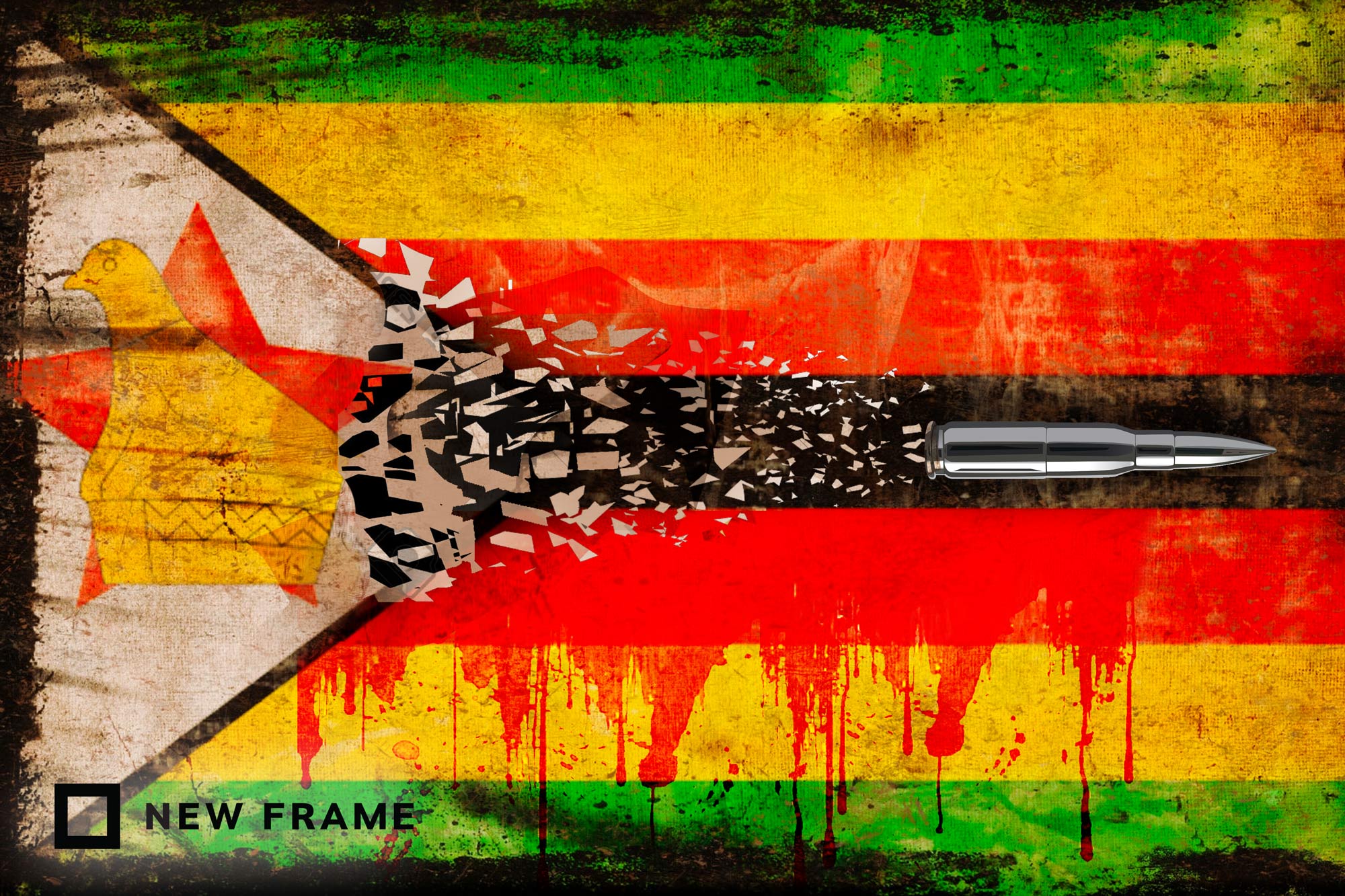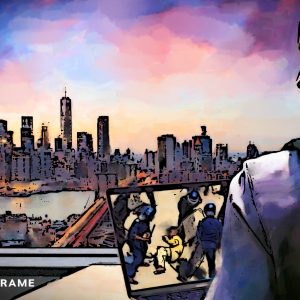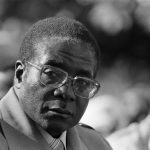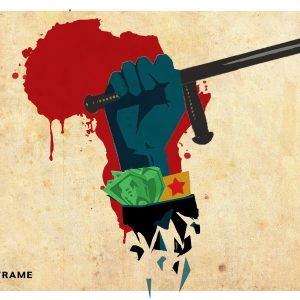The Zimbabwean army expands its influence
The army’s reach now extends to the media, business, the health sector and even the electoral commission, despite the Constitution being against its involvement in politics.
Author:
14 December 2020

The Zimbabwe Defence Forces (ZDF) has added a television station, NRTV, to what is fast becoming a growing business empire as the armed forces substantively consolidate their power outside of their military competence.
Rusununguko Media, a ZDF company that owns NRTV, is one of six that were awarded licences to operate free-to-air commercial television stations by the Broadcasting Authority of Zimbabwe in October. Interested parties have described the process of awarding that licence as bipartisan and lacking in diversity.
Rusununguko Media also partly owns Fairtalk Communications, one of the television licensees based in Bulawayo, the country’s second biggest city.
The latest incursion into television broadcasting by the armed forces reinforces the participation of the army in the political economy of the country. The extent of the role of the defence forces outside the military sphere has always been a matter of much public concern.
According to the Ministry of Defence, the defence forces are constitutionally mandated to defend the country’s independence, sovereignty, territorial integrity and national interests, create common regional security architecture, maintain international peace and stability, and give military assistance in times of need.
Related article:
Until a few years ago, Operation Sovereign Legitimacy (Osleg) Private Limited, a joint-venture company formed in 1999 between the ZDF and the Joseph Kabila-led Democratic Republic of Congo (DRC) government, and arms and ammunition manufacturer Zimbabwe Defence Industries (ZDI) were the two companies synonymous with Zimbabwe’s defence forces.
Osleg was established to exploit timber and minerals in the DRC in exchange for Zimbabwe’s military support in that country’s civil war in 1998.
But the discovery of diamonds in 2006 in Chiadzwa’s Marange area, just outside the city of Mutare, bred more companies, not only for the ZDF but also for other security forces – the Zimbabwe Republic Police and secret service agency, the Central Intelligence Organisation (CIO).
Investigations by Global Witness, a United Kingdom-based international non-governmental organisation, revealed that the CIO covertly controlled a stake in Kusena Diamonds, a company publicly owned by the Zimbabwe Mining Development Corporation (ZMDC). The military, through the ZDI, similarly possessed shareholding in Chinese companies Anjin Investments and Jinan Mining that mined diamonds in Marange, and the covert operations offered off-budget finance for the security forces. Anjin was owned by the Chinese army, the ZMDC (10%) and the ZDI (40%).
The army has continued to further its commercial interests beyond diamond mining. In 2014, the ZDI and ZMDC formed Great Dyke Investments through Pen East Pvt Limited, a joint venture with a Russian consortium comprising VI Holdings, Rostec and Vnesheconombank, to mine platinum group metals in Darwendale. But Zimbabwean President Emmerson Mnangagwa last year said that the defence forces had sold their stake in the $4 billion platinum group metals venture to an undisclosed local private investor.
Reasons for military business
Another Zimbabwe Defence Forces company, Qualisave Mineral Resources, operates a joint-venture firm, the Zimbabwe ZhongXin Electric Energy, with Yuxia ZhongXin Coking Company of China, which is building a 50MW coal-fired power plant in Hwange.
In another incident that demonstrates the armed forces’ predatory exploits, the Supreme Court last month reversed a high court ruling that had allowed army company Rusununguko Nkululeko and its partner, Falcon Resources, a company controlled by two Pakistan ex-military officers, to seize and exploit RioZim’s chrome mining concessions in Darwendale.
Defence industries are common the world over. A 2003 book edited by Jörn Brömmelhörster and Wolf-Christian Paes, The Military as an Economic Actor: Soldiers in Business, revealed that while the reasons for the emergence of military business differ from country to country, there are four common factors where they exist: the armed forces have access to material and human resources that are less accessible to civilians; they often turn to private enterprise to make up for shortfalls in defence budgets; weak states and poor civilian control of the armed forces create an added incentive for military elites to undertake commercial enterprises; and to create self-sufficiency for insurgent military forces.
In Zimbabwe, more than engaging in economic activities, the military and other security forces have long been known to play a key role in politics, even though it goes against the Constitution.
Related article:
In November 2017, the armed forces deposed president Robert Mugabe through a coup. Soon after the coup, incumbent Mnangagwa, whom the army anointed to take over from Mugabe, then appointed Constantino Chiwenga, the former army general who masterminded the coup, as his vice-president. Retired major general Sibusiso Moyo, the coup announcer, was named as the minister of foreign affairs, and airforce of Zimbabwe commander Perrance Shiri got the agriculture minister role.
The military was also involved in the campaign of violence and repression that returned Mugabe to power in the 2008 runoff elections, after the Movement for Democratic Change’s Morgan Tsvangirai was widely believed to have won the election.
Soldiers in office and the electoral commission
Over the years, serving and retired military officers have found employment and continue to be employed by state enterprises as chief executive officers, directors and workers, including in strategic organisations such as the country’s electoral body, the Zimbabwe Electoral Commission (ZEC). In one such example, the ZEC, whose allegiance to Zanu-PF has been unambiguous, appointed Utoile Silaigwana, a former soldier, as its chief elections officer in 2019. The militarisation of the ZEC was confirmed by its chairperson, Priscilla Chigumba, who told Parliament in 2018 that over 15% of ZEC officers were former military officers.
The justification for the absorption of army officers into state bodies is that military officers possess the temperament essential for the effective administration of state institutions, which is a fallacy.
The militarisation of the state bodies has continued unabated. In August, Mnangagwa appointed Chiwenga to double as the health minister, while Jasper Chimedza, an air force commodore, became the health permanent secretary. The government went a step further and made it mandatory for junior doctors to join the army as part of their housemanship. It’s a move that observers argue is meant to stop young doctors from demanding better wages and better working conditions because the military is not allowed to strike.
Related article:
Thabani Moyo, the national director of the Media Institute of Southern Africa Zimbabwe, said by getting into broadcasting, the armed forces have shown that they do not want to be left out of getting a piece of the pie in strategic sectors of the economy.
He said that their role was to defend the country’s sovereignty from aggression. “That mandate is best served when the army gets its support financially from the national budget – that way it’s more accountable,” he added. “What you then see as the omnipresence in business and politics in our social spheres shows that the army has gone beyond its normative role, and it is redefining its role in terms of its muscle from that of defending the country to being a player in politics and the national economy.”
The army’s role in Zimbabwe
Moyo said the dabbling of the military in politics and civilian activities was unique because it has been endorsed by the Southern African Development Community and the broader league of nations.
Political analyst and constitutional expert Lovemore Madhuku said: “There is no express prohibition of [military involvement in business] in the Constitution. What the Constitution prohibits is the involvement of the army people in partisan political party activities or executing part of the executive.”
University of Zimbabwe political science lecturer Eldred Masunungure said the defence forces were by nature a political institution, but in Zimbabwe, partisan politics is explicitly and unambiguously prescribed for the security forces.
“I’m aware of views that Zimbabwe is a party state, meaning that it is ruled by a ruling party that is symbiotically linked to the state but in that state there is the military that looms very large in the state apparatus,” Masunungure said. “So I would say constitutionally partisan politics is a no-go area for the military, though we do know that our defences are involved, to some extent even actively, especially towards and during elections.
Related article:
“On economic matters, the Constitution, to my knowledge, appears to be silent on whether the military or any branch of the ZDF can actively run a media operation or be involved in mineral mining. I’m not aware of where it is prescribed.”
He said what is happening in Zimbabwe resembled a deep state in which the military has an expansive role that goes beyond the defence of the country and its citizens.
“I think Zimbabwe is closer to that kind of characterisation of a deep state, and the ZDF as an organ is reflective of that deep state.”
The Ministry of Defence did not respond to questions sent to it.




